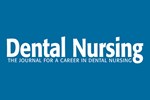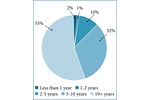
A guide to recruitment for dental nurses
In this article, Kate Russell explains what steps employers take when they are recruiting and how you can increase your chances of getting the job that you want

In this article, Kate Russell explains what steps employers take when they are recruiting and how you can increase your chances of getting the job that you want

This article examines how you can help others to use reflection informally and also within a structured portfolio

This series is exploring reflective practice as it relates to dental nursing. This article examines how you can use reflection to enhance your management role and how you learn from your experiences

This series is exploring reflective practice. The first two articles explored what reflection is and used the analogies of mirrors and microscopes to show the breadth and depth that reflection can achieve. This article examines how reflection can enhance your clinical practice and your teaching

This series is exploring reflective practice as it relates to dental nursing. It will be examining how it can work in clinical practice, education and management. It will look at portfolios, reflective learning, helping others to reflect, and the importance of reflection in life

How well do you or your team manage your routine on a day-to-day basis to ensure that it runs as effectively as possible? How often do you review why things did not go to plan? This article provides some effective tips to help you to achieve better time management

This six-part series will explore and discuss reflection. It will examine some of the techniques that you can use to aid reflection, how it can work in clinical practice, education and management. It will look at portfolios, reflective learning, helping others to reflect, and the importance of refle

Kelly Henderson discusses the new Foundation Degree in Advanced Nursing, and the challenges and rewards that entering academia offers

Personal development plans (PDPs) are a regulatory requirement for all DCPs, but what should they include? The PDP described here is based on some of the theories of development planning and it is hoped that you may find it useful in making your own PDP a more comprehensive and valuable tool

The need for an expanded skills mix within dental teams can lead to the decision to bring in new team members with the required skills from outside of the dental sector. The dental team benefits from a new skills range and the new team member learns new dentistry skills

The second part of this two-part article focuses on the results of the online survey that was run on the NEBDN website. It examines dental nurses' opinions on future training and educational needs and what courses should be developed to aid dental nurses to further their careers

A professional narrative is a collection of stories created to illustrate the work of professionals. For dental nurses, constructing a professional identity, and gaining recognition by society, can be achieved through creating a professional voice that tells stories about the valuable work dental nu

Rachel Hughes has successfully implemented a nurse-led clinic at her practice based solely on using the extended Scope of Practice. Here she discusses what exactly extended Scope of Practice is and how other nurses can use it to develop as individuals and to the benefit of their patients and practic

The final theme of our series of articles on dental nurse education and training in the UK focuses on the results of the online survey that was run on the NEBDN website. This is the first part of a two-part article and examines dental nurses' qualifications and employment

In this article, Laura Horton discusses how she became an upskilled dental nurse and how this can be a reality for so many dental nurses today as Scope of Practice allows dental nurses to become providers in their own right